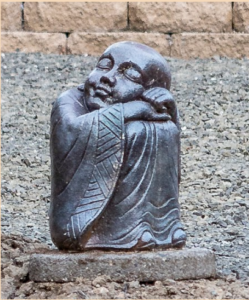 Ordinarily when something exactly matches what we’ve wished for, we might say “Perfect!” — invoking the ordinary sense of “perfect.” And as such, when it’s perfect, it’s perfect, “Yes, thank you, that’s just what I wanted!” But when it’s not, it’s imperfect, “I’m so disappointed,” or angry, frustrated, etc.
Ordinarily when something exactly matches what we’ve wished for, we might say “Perfect!” — invoking the ordinary sense of “perfect.” And as such, when it’s perfect, it’s perfect, “Yes, thank you, that’s just what I wanted!” But when it’s not, it’s imperfect, “I’m so disappointed,” or angry, frustrated, etc.
But the meaning of “perfect” as outlined in the Six Paramitas, isn’t ordinary in that way. The Paramitas do not belong to a set of opposites. They stand alone, referring to ways that we enact freedom from suffering through the exercise of patience, energy, mindfulness, generosity, diligence and understanding.
Without these qualities being expressed in our behaviors and actively practiced with, they remain nice concepts but are certainly not yet perfect. We know them as perfections only as we live them, realize them and manifest their capacity in action.
The events of this week illustrate the urgency of our practice of the Paramitas. We have choices. We can contract into fear, anger, and derision when things don’t go our way, or we can hold steady and reflect diligently on the forms our own reactivity and self-righteousness take.
Our practice always points us to the source and the vitality of the Paramitas in our own life first, or we can be swept along with the inchoate mob and get caught up in a hearsay narrative and the stresses of this historical moment. May we not forget. May we live into the Bodhisattva Vow and bring to our collective life our diligence and understanding, mindfulness, patience and generosity of spirit. As well as our creativity and skillful means.
Mushin